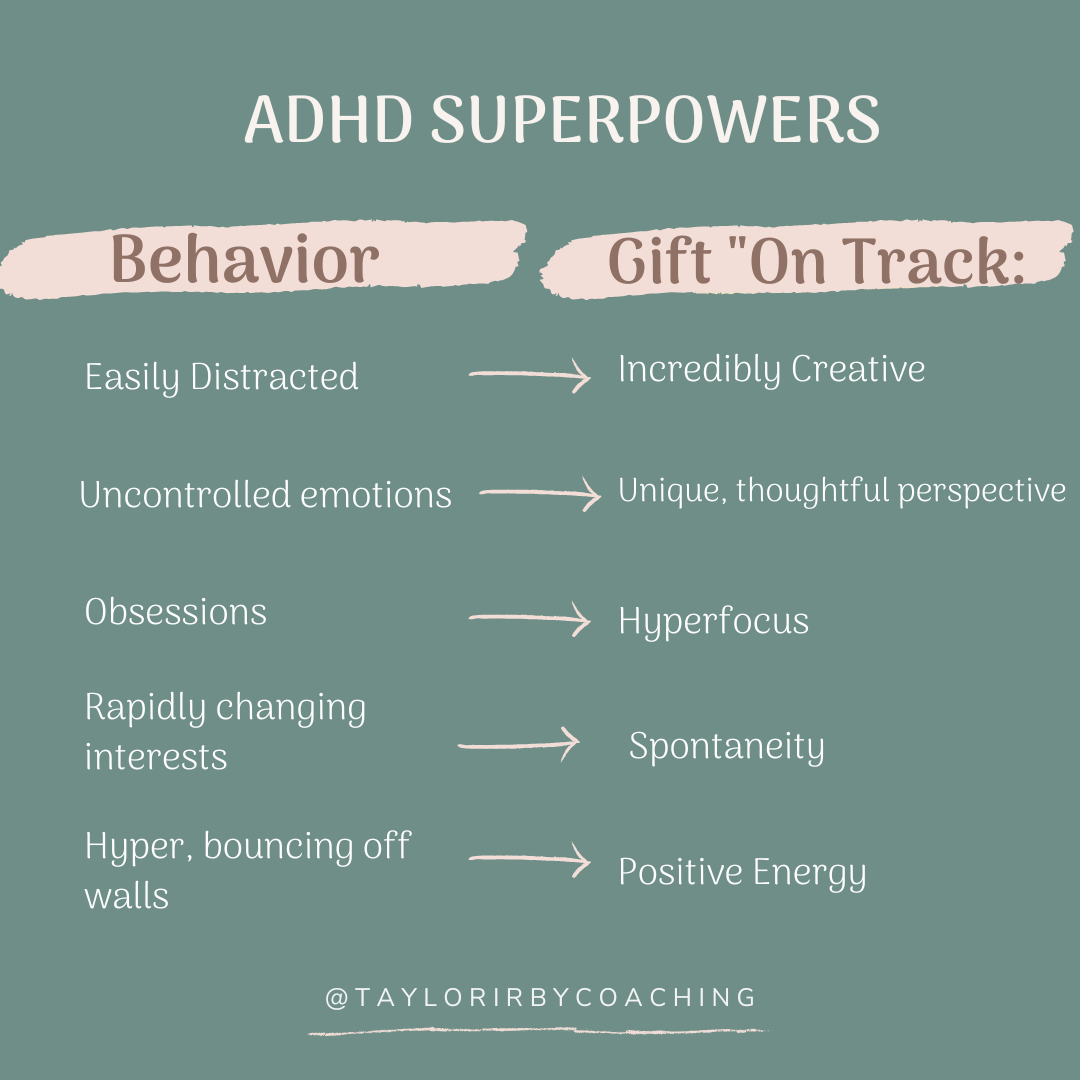What No One Told You About ADHD…ADHD Parenting strategies that build on strengths
“Hello, I’m calling to give you the results of your child’s evaluation. Your child has ADHD.”
At first I was a little taken aback. I was relieved to have some answers, but also a bit sad. What did this mean? I remembered my childhood and the few I knew who had the diagnosis. I was scared of labeling. I was hesitant and confused about treatment plans.
But I also was in agreement. As the psychologist explained what brought her to this conclusion, it all made sense. All the clues were there: short attention span, high activity levels, unable to sit still for a long period of time, sleep issues, etc. And as she read off the checklist given to diagnose the disorder, I checked every single box. Now I get why school was so hard, paying attention for a long period of time can feel excruciating, feeling lonely is almost painful! But what I’ve learned through these last few years surprised me. ADHD comes with a lot of amazing benefits, and these benefits are actually closely connected to our weaknesses. Channeled and matured well, those of us with ADHD can actually bring so much good to those around us.
So here you go, this is for free. What no one told you about ADHD (or at least, what no one told me…and this is not an exhaustive list!).
We are incredibly creative. Because we have inattentive minds, they are prone to wander. We may not be focusing on the problem at hand, but eventually we come up with an idea no one may have thought of before.
HOW TO SUPPORT THIS: First understand that learning in the traditional classroom can be excruciating. Still as an adult, I have a hard time in academic environments and even during church sermons (if you are reading this, Pastor Steven, it’s not you! It’s me!) If your child or student has a hard time paying attention, find a way to help them get their thoughts on paper or involved in the class. This could be helping at the board, helping lead the class or pass out papers, or even drawing out what they learn. Throughout school I doodled. In high school I figured a way to learn: by drawing out my notes in pictures. I still remember my teacher questioning me, asking why I wasn’t paying attention. The truth is, I was paying attention. I remember specifically what helped was notes to fill in the blank (this works for sermons too), or diagrams to label as we learn (I aced biology and geometry because of this). It helps us to understand the structure, where we have been and where we are going, and where we are at the moment. It gives us rails to always get back on track.
We have an incredible superpower for hyperfocus. Have you noticed your child not responding when asked to finish a certain activity (hello video games! Crafts at bedtime! Reading an interesting book!) This is hyperfocus at work and it can be incredibly frustrating as a caregiver. However, what masks as a weakness is actually one of our superpowers. We have the ability to learn a lot in a short amount of time because once something hooks us, it’s hard to let it go.
HOW TO SUPPORT THIS: Give us a visual timer and tell us how much time we have. We do really well with clear boundaries. This will take a little planning on your part, but if its something you know is hard for us to leave, it’s worth it to let us know in advance so we can see the end coming. If we are almost done with that gaming level, detail in the coloring page, etc give us some grace when the timer goes off. Leaving something unfinished is really difficult for us and bugs us to pieces when we have to walk away from it (and sometimes we do), so it’s best to be avoided when at all possible. **Note: Learning how to leave something for later is a great skill, but if it’s possible to not enter the power struggle here, give us that 2 more minutes*
Spontaneity: Some see it as a lack of impulse control. And without the learning of skills and values, it can really weigh us down. But matured and channeled well, this is one of the great gifts we have. This fuels our creativity and makes us one of the “fun” people in the room. We can move quickly from different ideas and activities, bringing a great gift to the world.
HOW TO SUPPORT THIS: Manageable choices are really helpful here. Helping us understand the impact of our actions builds wisdom to empower us to make wise choices. In Connected Families we use the phrase: “If, Then, Otherwise, You Choose” to help us think through our actions. Example: “If you can clean up your toys, then you can play with them tomorrow. I hope you do choose to clean them up because I love seeing you happy with them. But Otherwise they will go in my closet for a few days. I’m going to go check on dinner real quick, and I’ll come back to see what you choose.” (and for those of us still learning how to clean up our messes, maybe we need a little support to learn how)
Full of Energy: it’s no secret that those of us with ADHD have loads of energy. It seems like sometimes we bounce off the walls and take a lot of space. We are aware of this and some of us are self conscious (I often wonder if I’m talking too much). This is the result of shame over time (people rejecting us without gentle correction or bringing awareness). Energy is not a bad thing. Energy is what keeps the world going, and good energy can radiate to the people around us.
HOW TO SUPPORT THIS: If your child seems to be bouncing off the wall, consider the energy that is going on in their bodies. Could jumping on a trampoline release some of that? How about swimming? A crash pad? This is easy: get all the couch cushions on the ground, bring a chair for a ladder, and let them “crash” from the chair to the cushions. Kids love this, and it helps release a lot of that pent up energy in a healthy way.
Thoughtful and a different perspective: One of my favorite things about having a child with ADHD is to see things from a different perspective. Each time there is a plot hole in a movie, she knows it. When I’m frustrated at an inconvenience, she knows the benefit of it. She is keenly empathetic and generous. She has a way of seeing the other side of things. People who have the opportunity to understand self and co-regulation skills as well as the benefits of having ADHD are often our greatest thinkers and world changers. In fact, many famous people have ADHD and have learned how to harness the strengths that led to their successes. Here are just a few.
HOW TO SUPPORT THIS: Lean on your child’s strengths. Find the good, even if its just a small thing (for now!) and see how you can brainstorm with your child to feed into that. Is your child acting destructive? Perhaps she is a great artist that needs to understand how to create in a helpful way. What about back talking? Maybe he would be fantastic at giving persuasive speeches. In Parent Coaching we work through each “gift gone awry” and build on skills needed to get that gift on track to showcase the strength.
And there you have it, at least 5 things you may have not heard about ADHD. Did it surprise you? If you know someone with ADHD, is this starting to make sense? When we step back to understand what it might feel to be our child, we can harness the power of empathy to help them grow into these strengths.
Are you parenting or working with a child with ADHD? I have loads of resources I’d love to share with you. Book a consult today and we can talk about your needs and what you can do see the incredible benefits of these special kids (and adults!)


